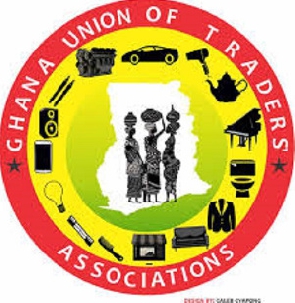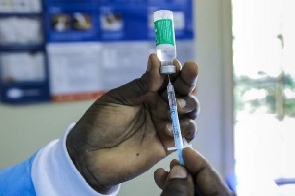The Ghana Union of Traders Association (GUTA) has called on the government to immediately take steps to remove taxes on sanitary pads.
“It is morally right to remove taxes on sanitary pads. We urge the government in doing that urgently,” Dr Joseph Obeng, President of GUTA said in an interview with the Ghana News Agency.
Dr. Obeng said, with the low production of the primary menstrual hygiene products in the country, “removing the taxes will help reduce the prices, give respite to those who find it difficult to purchase, and increase access.”
“The government must support our local industries to produce more of these sanitary pads and other things that we have the raw materials in the country by removing various obnoxious taxes to give respite to businesses.”
The Association’s call comes as the campaign intensifies for the government to take away the cumulative 32.5 percent taxes on the absorbent material, which also helps in protecting the clothes of users from stains and odours.
Ghana has a 12.5 percent Value Added Tax (VAT) and a 20 percent import tax on sanitary pads.
The Ghana Revenue Authority (GRA) – the country’s revenue mobilisation body, classifies menstrual hygiene products as finished goods, and are, therefore, subject to import tax.
On Thursday, a group of Civil Society Organisations (SCOs), petitioned Parliament, the legislative arm of government to demand definite and immediate action in scrapping taxes on sanitary pads.
The campaigners said the taxes had made the prices of the product costly, causing absenteeism among girls in school and hygiene issues for the rural poor, who could not afford them.
They urged the government to remove the taxes to give relief to the over 51 percent female population.
Two years ago, a not-for-profit gender advocacy, Bridge for Equity Ghana, presented a similar petition to the Ministry of Gender, Children and Social Protection (MoGCSP) for parliamentary consideration.
Lilipearl Baaba Otoo, Founder of the Group, said removing the taxes, “will help address the issues of period poverty.”
Patrick Fynn, Coordinator for Bridge for Equity Ghana, also said removing the taxes would encourage more local production and support the government’s agenda to promote the patronage of made-in-Ghana goods.
“It will also go a long way to address issues of unemployment, poverty, school dropouts, absenteeism, and even teenage pregnancies,” he said.
Meanwhile, the Association of Ghana Industries (AGI) has asked the government to be cautious about removing the taxes on sanitary pads.
“Much as the waiver of duties/taxes on imported sanitary pads for our young women to make the pads more affordable may sound good, it will only end up completely wiping out the few
local sanitary pad factories left in our country,” Seth Twum-Akwaboah, the Chief Executive Officer of AGI said.
Sanitary pads are also used during bleeding after childbirth, recovery from a gynaecological surgery, or experiencing a miscarriage.
Some men also wear sanitary pads (adult diapers/incontinence pads) to prevent uncontrolled urine leakage and for other medical conditions.
Business News of Saturday, 24 June 2023
Source: GNA
It is morally right to remove taxes on sanitary pad – GUTA
Entertainment












